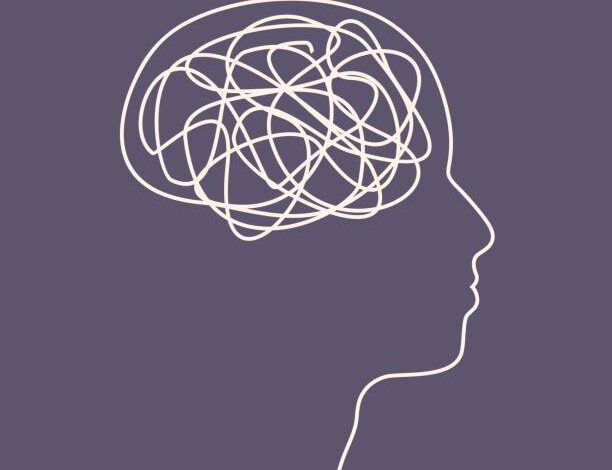
Mental health, often veiled in mystery and misconceptions, remains one of the most fascinating and crucial aspects of human existence. Just as our bodies require care and attention, our minds too need nurturing to thrive. This article aims to unravel the complexities of mental health, exploring its significance, the factors influencing it, common disorders, and strategies for maintaining mental well-being.
Understanding Mental Health

Defining Mental Health
Mental health encompasses more than just the lack of mental disorders. It’s a state of well-being where individuals recognize their abilities, manage the normal stresses of life, work productively, and contribute to their communities. It’s a critical component of our overall health, integral to how we think, feel, and interact with the world.
The Dimensions of it
It encompasses various dimensions, including:
- Emotional Well-being: Our ability to navigate our feelings, whether joy, sadness, or anger, reflects our emotional health.
- Psychological Well-being: This aspect pertains to our thought processes, beliefs, and perceptions, influencing how we interpret and react to the world around us.
- Social Well-being: As social beings, our interactions and relationships significantly impact our mental health.
Factors Influencing Mental Health
Numerous factors interplay to shape our mental health:
- Biological Elements: Our genetics, brain chemistry, and physical health can predispose us to mental health challenges.
- Life Experiences: Experiences like trauma, abuse, or significant loss can deeply affect our mental well-being.
- Environmental Influences: Our living conditions, community, and societal norms can either support or hinder our mental health.
Mental Health Disorders
Mental health disorders, also known as psychiatric disorders, are a range of mental health conditions that affect mood, thinking, and behavior. Here’s an overview of various mental health disorders, their symptoms, causes, and treatment options.
1. Anxiety Disorders
Anxiety disorders are marked by an overabundance of fear or anxiety that significantly impacts everyday functioning. The conditions they cover include generalized anxiety disorder, panic disorder, and social anxiety disorder.
- Symptoms: Persistent worry, restlessness, rapid heartbeat, difficulty concentrating, and insomnia.
- Causes: Genetics, brain chemistry, personality, and life events.
- Treatment: Psychotherapy, medication, lifestyle changes, and stress management techniques.
2. Mood Disorders
Mood disorders affect an individual’s emotional state, leading to periods of intense happiness or sadness. They include major depressive disorder, bipolar disorder, and cyclothymic disorder.
- Symptoms: Persistent feelings of sadness or extreme happiness, changes in sleep and appetite, loss of interest in activities, and mood swings.
- Causes: Biological differences, neurotransmitter imbalances, inherited traits, and life events.
- Treatment: Medication, psychotherapy, and lifestyle adjustments.

3. Schizophrenia
Schizophrenia is a severe mental disorder that affects how a person thinks, feels, and behaves, leading them to lose touch with reality.
-
Clinical Presentation: Manifestations may include delusions, hallucinations, cognitive disorganization, reduced motivation, and withdrawal from social interactions.
-
Causes: Genetics, brain chemistry and structure, and environmental factors.
- Treatment: Antipsychotic medication, psychotherapy, and support services.
4. Obsessive-Compulsive Disorder (OCD)
OCD is characterized by unwanted, recurring thoughts (obsessions) and repetitive behaviors (compulsions) that the individual feels driven to perform.
- Symptoms: Obsessive fears, compulsive cleaning or checking, and the need to follow strict routines.
- Causes: Genetics, brain structure, and environmental factors.
- Treatment: Psychotherapy, particularly cognitive-behavioral therapy (CBT), and medication.
5. Post-Traumatic Stress Disorder (PTSD)
PTSD is a disorder that can develop following a traumatic or terrifying event. It’s marked by flashbacks, nightmares, and severe anxiety.
- Symptoms: Reliving the traumatic event, avoidance of reminders, heightened reactivity, and mood symptoms.
- Causes: Experiencing or witnessing traumatic events.
- Treatment: Psychotherapy, including CBT exposure therapy, and medication.
6. Eating Disorders
Anorexia nervosa, bulimia nervosa, and binge-eating disorder are among the conditions that are encompassed.
- Symptoms: Preoccupation with food, body weight, and shape, eating in secret, and excessive exercise.
- Causes: Genetics, biological factors, psychological issues, and societal pressures.
- Treatment: Psychotherapy, nutritional counseling, and medication.
7. Personality Disorders
They include borderline personality disorder, narcissistic personality disorder, and antisocial personality disorder.
- Symptoms: Vary widely but generally include difficulties in interpersonal relationships and self-perception.
- Causes: Genetics, childhood experiences, and brain structure and function.
- Treatment: Psychotherapy, particularly dialectical behavior therapy for borderline personality disorder, and medication.
The Stigma and Its Impact
The stigma around mental health persists, often fueled by misconceptions and lack of awareness. Combatting this stigma is crucial for creating a supportive environment that encourages individuals to address their mental health needs.

Strategies for Mental Well-being
Maintaining mental health is an ongoing process. Here are some strategies:
- Self-Care: Engaging in regular physical activity, maintaining a balanced diet, getting adequate sleep, and practicing mindfulness can support it.
- Building Resilience: Developing coping skills and a robust support network can enhance our ability to navigate life’s ups and downs.
- Professional Support: Therapy, counseling, and medication can be vital for those struggling with mental health issues.
- Education and Awareness: Staying informed about it and recognizing early signs of it can empower individuals to seek help promptly.
The Way Forward
Understanding it requires a holistic approach that considers the myriad factors influencing the human mind. As society progresses, it’s imperative to continue destigmatizing mental health issues, promoting access to care, and fostering supportive environments. By embracing the complexity of it, we can pave the way for a healthier, more compassionate society where mental well-being is a priority for all.

Conclusion
Mental health, with its complexities and nuances, is a vital aspect of our well-being. It demands the same attention and care as physical health, necessitating a holistic approach that includes education, support, and access to care. By fostering a deeper understanding and eliminating stigma, we can create a compassionate society where mental well-being is prioritized, allowing every individual to flourish both mentally and emotionally.





